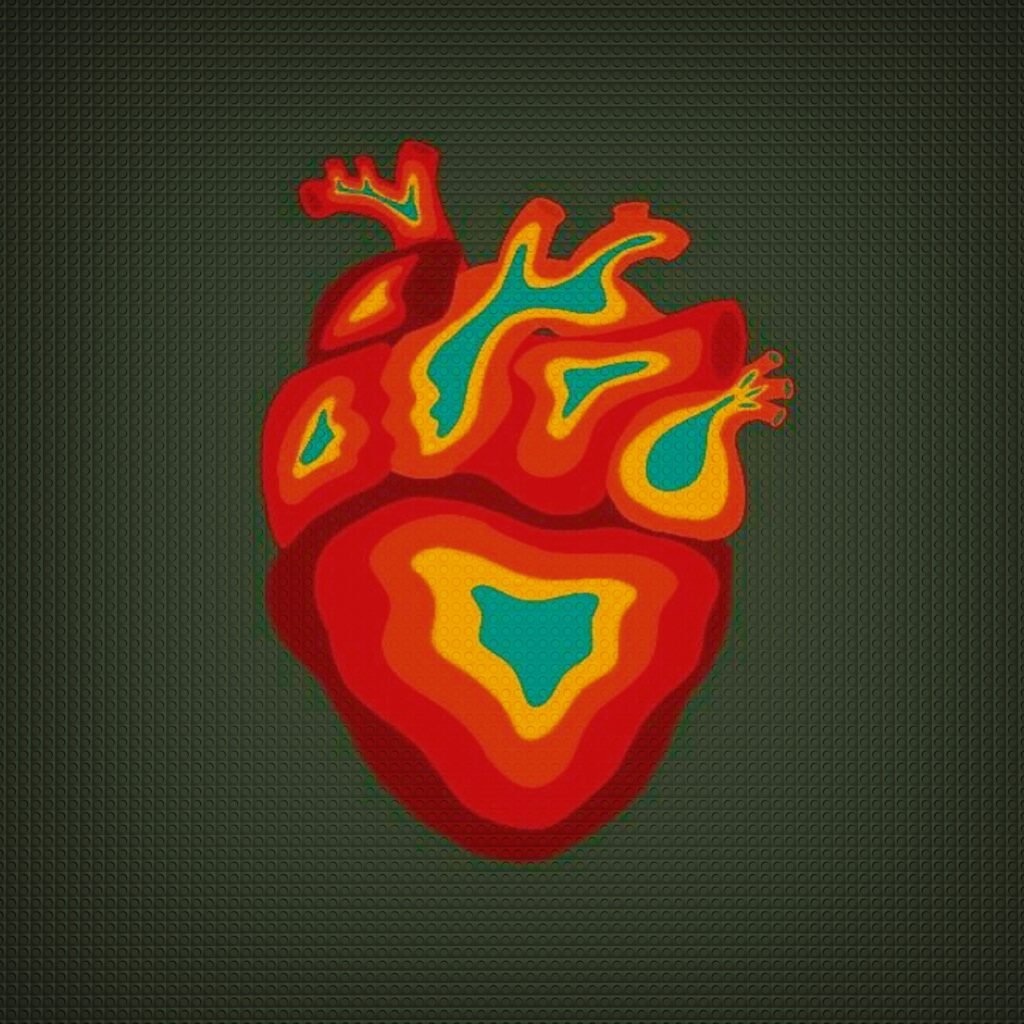Introduction: When Empathy Is an Extreme Sport
If compassion were a sporting event, my stamina would flicker most dramatically on those mornings when I am, unquestionably, at the bottom rung of Maslow’s hierarchy — sleep-deprived, self-conscious, and convinced that my mirror is gaslighting me. Everyone waxes poetic about empathy as a spiritual practice; but few admit that it feels more like juggling fragile eggs while blindfolded — especially when your own emotional eggs are scrambled.
Recently, this lesson slammed into me with the force of a 4-alarm pimple. I’d scheduled a Zoom call with my new boss, only to awaken with a chin so red it might have triggered the company’s fire evacuation. As I blearily reached for a mug of hope (coffee), drilling cold water onto my face, my phone buzzed — a friend in crisis, desperate for support. Unshowered, under-rested, and five shades crankier, I found myself staring at the crossroads between self-pity, compassion and self-deception that everything is hunky-dory.
This is the tale of my dance (sometimes drunk, sometimes desperate) with the compassion code — that unwritten rule that says “try to feel for others, especially when you’d rather hide under your bed.” Empathy, as I’ve come to learn, is never perfect, never timely, and rarely clean. It’s a ride that begins precisely when you are least prepared for it and compassion code is highly bespoke.
Hangover Empathy: The Early Failures

The thing about hangovers is, they amplify your flaws. Willpower shrinks, patience evaporates, and self-centering becomes dangerously easy. I distinctly remember one morning when, courtesy of nostalgia and questionable wine, my mind sounded like NPR playing through a bass amplifier, and my mood was more “do not disturb” than “how can I help?” So, compassion code was also hungover.
Cue my friend — heartbroken after an explosive breakup — texting for comfort and clarity. My first impulse was brutal: “Men are trash. You should get a dog.” Not exactly wisdom-of-the-ages, but it was the best I could muster while eating last night’s pizza from the box. Yet, as my head throbbed, something softer surfaced beneath the sarcasm; an urge to be useful, even if wildly imperfect.
That, I realized, is where the compassion code gets activated: it’s not asking you to be a therapist or a monk. It’s asking you to punch in, emotionally, even if all you can manage is gruff camaraderie and a dumb GIF. Showing up—flawed and human—is the small print of empathy that we’re never taught.
The Messy Middle: When Pimpled Faces Meet Broken Hearts
Skin crises and emotional crises make unsettling bedfellows. When I have a breakout, my empathy capacity contracts. The world is a stage, and my face refuses to leave the spotlight. This makes even simple kindness an advanced skill.
There was the time a coworker, a star performer, botched a big project. During our postmortem, as they choked up, my mind was split between “How can I support?” and “Is this lighting hiding my breakout?” At that moment, the compassion code felt like a cruel dare. My own anxiety didn’t want company — it wanted the starring role.
But as I listened to my coworker’s embarrassment and guilt, the truth became undeniable. Empathy is inconvenient. It shows up when you have no emotional bandwidth, no time, and — ideally — when you least want to listen. And it’s not a zero-sum game. My pimple is valid. Their pain is real. The best I can do is shelve self-disgust for one minute to let another person feel heard.
That’s the messiness nobody tells you about. Listening doesn’t mean erasing yourself. It means balancing your circus while letting someone else take center ring for a few precious moments.
Comedy as Coping: How Humor Saves Empathy
Let’s be honest. The world is absurd. Empathy, especially on days when you’re one chin eruption from a self-esteem implosion, must be comedy in the purest sense. Humor, I’ve found, is a glue and a life raft. It saves dignity when all else fails.
Once, while waiting at the pharmacy for a prescription, I witnessed a fellow sufferer — a teenager pacing, holding their prescription for acne cream like it was radioactive. I caught their eye, pointed at my own face, and mouthed, “Solidarity.” In that moment, we tacitly agreed that the compassion code had no fine print about looking your best.
Humor lets you share a laugh — sometimes at yourself — and makes connection less intimidating. You crack a joke about caffeine dependency, or admit to recoiling from your own reflection. Suddenly, the person in pain isn’t alone. Science says laughter releases social tension and deepens bonds.
The best empathy is often silly. It’s not the well-polished “I understand” but the snorted laugh, the pimple meme, the faux-dramatic, “My chin is staging a rebellion too.” Comedy is a great equalizer; it makes the compassion code feel less like a law, and more like an inside joke.
Empathy Olympics: The Competition for Suffering
But here’s something strange: when you’re hurting, empathy feels competitive. The “I’m more exhausted than you” or “My stress is bigger.” This is empathy as a competitive sport. Is it noble? No. Is it human? Absolutely.
At family gatherings, I watch this Olympics unfold: who had the worst traffic? Whose health fails most dramatically? Who’s more burnt out at work? It becomes a game of ever-escalating misery, where compassion is drowned by the need to win at suffering.
I’ll admit: my pimple is often my trump card, brandished in conversations as proof that my struggle is worthy. “Sure, work sucks, but have you seen my face?”
Yet, every time I “win,” I miss the point. The compassion code is not about one-upping each other’s pain. It’s about silent acknowledgment — sometimes wordless — that suffering is boringly universal, and the prize is solidarity, not superiority.
The Compassion Code in the Workplace: Trying Not to Snap
The real test of the compassion code is office culture. Work gives infinite opportunities to disappoint, ignore, or snap. Colleagues have bad days; you have bad months. The line between productive frustration and nuclear meltdown is thin.
I’ve learned that empathy at work means pausing before you unleash your simmering sarcasm. One Monday, after a weekend of culinary misadventure (hangovers plus instant ramen — never again), a teammate missed a crucial deadline. My patience was cooked. I wanted to say, “We’re all struggling, but I didn’t forget my work.” But a second’s pause brought empathy into play. Their sick child, their own exhaustion, their apology.
Empathy doesn’t require you to minimize your stress or bite your tongue beyond reason. It teaches you to see every mishap as another round in the barely-organized chaos show we’re all starring in. The compassion code, then, is accepting that people are messy, and so are their reasons. Sometimes grace is harder than anger, but always more meaningful.
Self-Compassion: The Forgotten Piece
Empathy is impossible without some measure of self-compassion, a fact I’ve resisted all my life. I used to believe that I could shove my insecurities aside and be “present” for others, but it always backfired. My emotional well runs dry when I neglect myself, which means the compassion code starts with the hardest audience: my own reflection.
When I’m kind to myself—regardless of skin or hangover or disappointment—I find some capacity left over for others. Self-forgiveness opens the door for generosity. Yes, my face is tragic. Yes, my choices need review. But if I can breathe and extend understanding to myself, I can better share it.
On rough mornings, this is my pep talk: “You deserve grace, too.” Only when I absorb that—messy, unshowered, over-caffeinated—can I offer someone else the same.
Anecdotes: Small Moments, Big Lessons
The Empathy in the Elevator
I once found myself stuck in an elevator with three strangers. My day was horrendous, my face was a roadmap of distress, and the woman next to me was sniffling, probably having a meltdown of her own. Instead of hiding behind my phone, I ventured, “Mondays don’t play fair, do they?” She laughed, replied, “Worst presentation ever. Wish I could transfer office drama to my cat.” The man beside her chuckled, showing his own stress lines.
We bonded over complaints, offering each other permission not to be superheroes. That moment was pure, unfiltered compassion — a lifting of burdens, with no one needing to be perfect.
The Compassion Code While Commuting
Train rides are empathy boot camps. Everyone’s harried, everyone’s annoyed, and your pimple glistens under the fluorescent light. On a memorable morning, an elderly man dropped his newspaper and sighed heavily. No one budged. I hesitated. My mood was rotten. But I reached down, handed it back, and he looked me in the eye: “Thank you. I’m having a truly wretched morning.” Me too, I mouthed. Sometimes, that’s all empathy is — a silent fellowship of “me, too.”

Friendship at Low Points
A few months ago, a friend called during a meltdown over her thesis. I was barely awake, haunted by last night’s spicy food and existential dread. My initial advice was gibberish. But as she ranted, my mind cleared. I asked about her favorite comfort show; we laughed about our shared misery. The compassion code, in this case, was ugly, honest, and just supportive enough. Those moments matter more than perfect advice.
Technology’s Role: The Digital Compassion Code
Modern empathy is often administered through thumbs and emoji. The compassion code, version 2.0, thrives or fails in WhatsApp replies, comment threads, or Slack channels.
Giving support online is simultaneously easier and trickier. You can send a meme or heart emoji as a way of saying “I see you,” but tone and nuance often disappear. I’ve typed, “Hang in there!” a hundred times, hoping it carries meaning. Yet, sometimes digital compassion is the only way to show presence when in-person is impossible.
But this scale of connection comes with new pitfalls: compassion fatigue, social comparison, and the pressure to respond instantly. Real, meaningful empathy online starts when we remember that a few words or seconds of patience can break through screens and nurture real bonds, even when we feel inadequate.
Compassion Code Crash: When It All Goes Wrong
Not every attempt at empathy succeeds. Some days, I fail spectacularly. The code crashes; impatience takes over.
There are mornings I ignore texts, snap at loved ones, mute colleagues, and spiral inward. Regret follows. And in those apologies — sometimes late, sometimes awkward — I’ve discovered the deepest layers of the compassion code. Admitting failure is itself an act of empathy. “I’m sorry. I wasn’t my best.” It’s messy, it’s real, and it creates more space for connection.
In these moments, emotional depth surfaces hardest: compassion for yourself, understanding for others, and forgiveness on all sides. Empathy isn’t about always getting it right; it’s about coming back, recommitting, and confessing that you are gloriously, hopelessly human.
The Universal Mess: Empathy as Ordinary Heroism
Empathy feels like a luxury on good days and an impossibility on bad days. Yet, if the pandemic years taught us one thing, it’s that suffering is universal and hidden, and kindness ripples wider than we think.
I’ve seen strangers help each other in supermarkets. I’ve watched overworked nurses comfort terrified patients despite sleeplessness and stress. I’ve witnessed clients forgive botched projects because the person behind them was honest about their limitations.
The compassion code, ultimately, is ordinary heroism: showing up for others while enduring your own stuff. It’s the texts sent during exhaustion, the smiles through frustration, the willingness to listen when you’d rather not.
Humor and Depth: Learning to Laugh at Yourself — and With Others
Humor gives depth to empathy. It’s confession by laughter, bonding through shared disaster. Some of my closest friends are those I’ve laughed with about bad dates, worse jobs, terrible decisions, and unfortunate facial eruptions.
When you joke together about hangovers and heartbreak, you create space for vulnerability without shame. You learn that suffering isn’t special; it’s everywhere. Humor lightens the load and brings people together across barriers, making the compassion code feel accessible even from the depths of despair.
The Takeaway: Your Heart, Pimpled and Hungover, Matters
Through all of my blunders and breakthroughs, one non-negotiable truth has emerged: the compassion code is for everyone, especially the ones limping through rough days. Perfection is not required. Emotional depth blooms from honesty, humor, and humility.

Empathy does not mean sacrificing yourself. It means showing up, with all your flaws, and saying, “Let’s feel this together.” It means extending grace to others and yourself, forgiving mistakes, and laughing at the chaos. The code doesn’t have strict rules — it has soft edges, forgiving hearts, and generous spirits.
On hopeless mornings, with pimples blazing and headaches roaring, remember: even small gestures count. A word, a meme, a smile, a nod. The compassion code runs on these messy, imperfect attempts.
So, if you’re struggling today — if kindness seems impossible, remember: empathy is resilient. It’s built for hangovers, bad skin days, lonely nights, and crises large and small. Share your mess, and watch how others share theirs back.
Because when the compassion code gets messy, that’s when it gets magnificent. And that — pimples, mistakes, humor, and all — is how we heal, together.





0 Comments